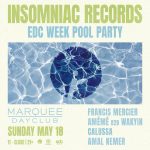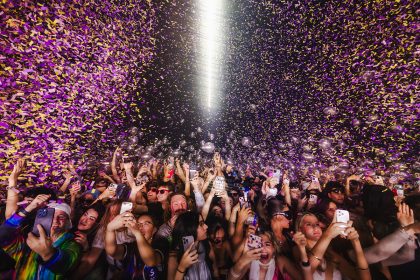Safety Dance: DJs Share Their Health Tips
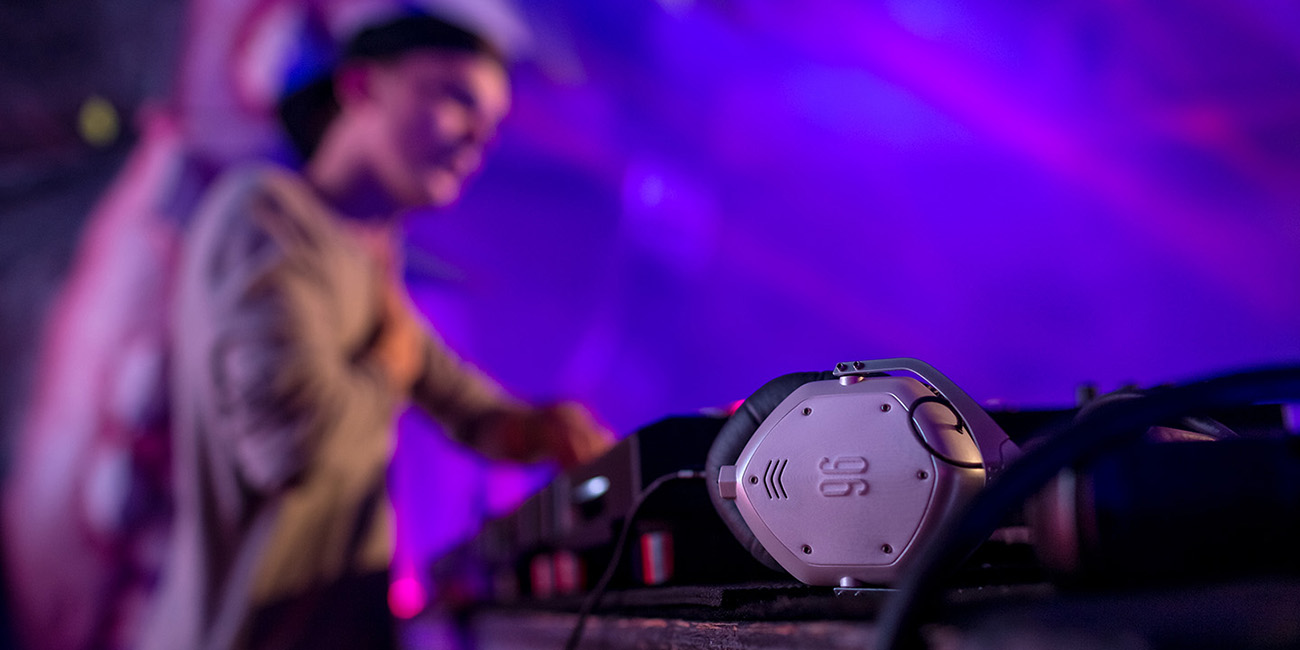
Upcoming Event
Two years before Avicii took his own life at the age of 28, the Swedish superstar announced that he was retiring from touring for health reasons. While the full circumstances that drove him to suicide may never be known, grieving fans and colleagues have surely speculated if the DJ’s all-too-brief run as one of dance music’s most sought-after talents had taken such a physical and mental toll on him that he was unable to recover. Oftentimes that speculation has come at the expense of the dance music industry itself, which has been blamed (in part thanks to damning footage in the documentary Avicii: True Stories, which was pulled from Netflix following his death) for fostering an environment that’s harmful to the health not just of Avicii, but of all touring artists and DJs.
It’s true that the life of a touring DJ can be a grueling one, and the discussions now happening about the mental health of dance music artists are necessary and long overdue. But it’s also true that there are many, many dance music creators who have sustained successful careers, often for decades, while still maintaining their mental, physical, and emotional health. And we can learn from their successes.
Insomniac spoke to some of our favorite artists—including Borgore, Wuki, DJ Colette, and Tommie Sunshine—to get their advice on what touring DJs can do to take care of themselves and have a sustainable, happy, healthy career in electronic dance music. Below are the seven biggest takeaways from our conversations with them.
Note: All of this advice is no substitute for the help of a healthcare professional. If you’re struggling with mental health issues, addiction, substance abuse, chronic pain, or anything else that’s preventing you from living your life to the fullest, whether you’re a DJ or anyone else, talk to your doctor or visit www.mentalhealth.gov for more help and resources.
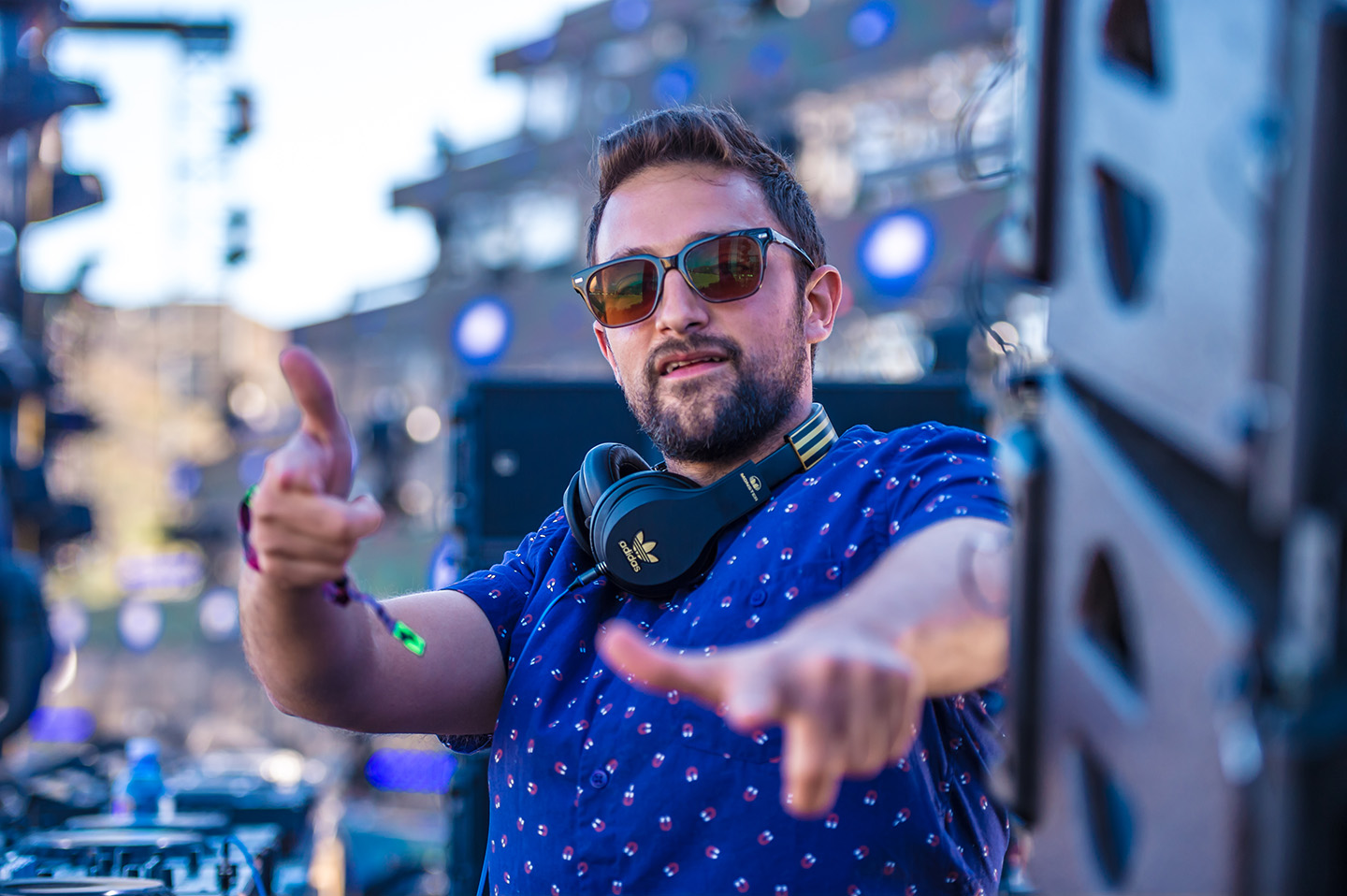
1. Get some exercise
Many studies have shown that regular exercise isn’t just good for your body—it’s good for your mind, too. Physical activity can relieve stress and anxiety, improve memory, help you sleep better, and even alleviate symptoms of long-term depression, ADHD, and other mental health issues. But how do you squeeze in a workout when you’re constantly on the road?
“As soon as I land, the first thing I do is always hit the gym,” says Wuki, who got his start with Innerpartysystem and now, as a solo artist, plays gigs around the world almost every weekend. “It restarts me. I have to do it; otherwise, I feel so tired and crappy.”
If hotel gyms aren’t your thing, there are plenty of other ways to stay active, even in the midst of a demanding touring schedule. Loco Dice famously practices kung fu and other martial arts and seeks out local kung fu trainers whenever he’s on tour. DJ Colette goes running. Borgore is into sport climbing, but since that can be hard to do while on tour, he also recommends simply exploring cities on foot: “Just walk, see sights, do some shopping.”
It’s also good to mix up your routine so your workout regimen doesn’t become its own source of stress. If Wuki’s really tired, sometimes he’ll skip the gym and do yoga instead. And if Colette can’t squeeze in a run, she gives herself permission to relax: “If I don’t have time, I don’t stress myself out about it.”
2. Change up your diet
As with exercise, a growing body of science is showing that what we eat affects how we feel, both mentally and physically. Erratic, unhealthy eating habits can compound the stress and fatigue that are the hazards of a DJ’s hectic schedule.
Everyone’s metabolism is different, so when it comes to what you eat, there’s no one-size-fits-all approach. But there are definitely diets and eating habits that make it easier to cope with all those late nights, long flights, and lonely hotel rooms.
For Wuki, that means the keto diet, a carb-restriction regimen aimed at putting the body into a state of “ketosis,” in which it burns energy from fat more efficiently. Wuki switched to the diet in hopes of getting rid of his chronic migraines, and it worked. The diet has other benefits, as well. “A lot of people, including myself, experience a jump in cognitive ability,” he notes. He’s also able to go longer between meals without feeling those “deep, sharp hunger pangs” that often lead to overeating. “If I start feeling a little hungry, all I need to eat is like a handful of nuts.”
For many other DJs—including, most famously, Moby and Chris Liebing—a vegan diet is the way to go. Many do it for ethical reasons rather than strictly for health, but Liebing has noted that giving up dairy, in particular, can be beneficial both to one’s physical and mental well-being. “Before meat, I’ll suggest to get rid of dairy in your diet,” he told the food blog First We Feast in 2015. “That had the biggest effect on me ever. I started to feel a lot better. I rarely have colds and have had way more energy since then.”
Whether or not you choose to go on a specific diet, seeking out healthy, minimally processed foods is key, and when you’re spending much of your time in clubs and airports, sometimes that means packing your own. “I bring snacks on the road—little granola bars or fruit bars,” says DJ Colette. “You don’t want to turn into the hangry DJ on the road.”
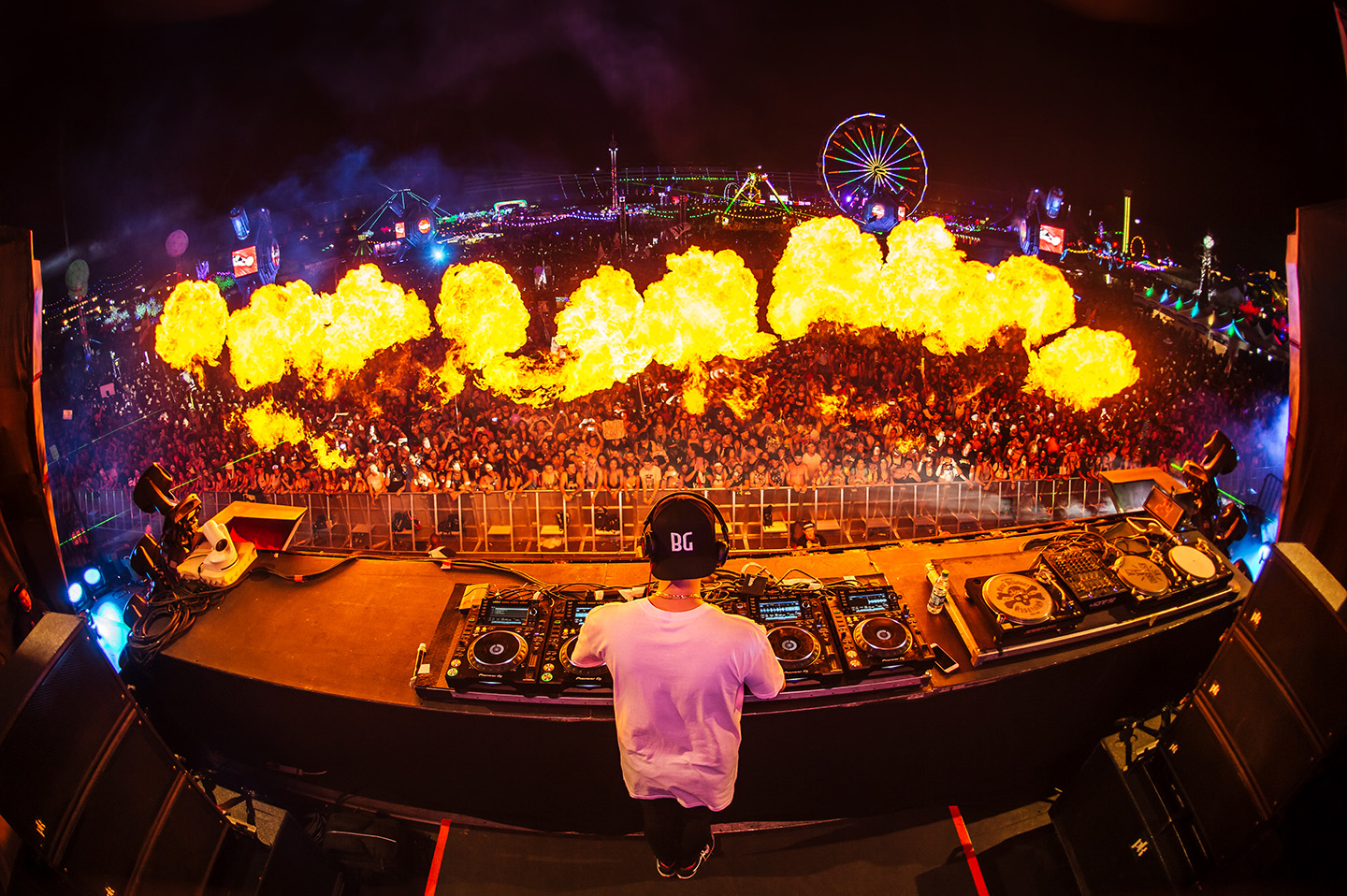
3. Lay off the booze
Staying sober when you’re on the decks may seem like the most obvious thing in the world, but when everyone wants to buy the DJ a drink, or the club pays you in drink tickets, it can take discipline to avoid the temptations. “It’s something that I’m always trying to put in check,” Borgore admits of his own fondness for alcohol, which he’s learned to better control over the years. “You don’t have to get drunk every time you DJ. I really pay attention to not drinking as much as when I was younger and reckless.”
For some DJs, the best course is to avoid alcohol while on the job. Colette stopped drinking at gigs eight years ago. “For me, only drinking water when I’m performing has been the best choice,” she says. “Both technically and artistically, it’s improved my sound.”
For others, giving up alcohol altogether is the way to go. Tommie Sunshine has been sober for 13 years, a lifestyle change he says is the number-one reason he’s still able to have a career in dance music. “It was a do-or-die situation,” he says now. “I knew that my habits and my partying were getting in the way of me progressing as an artist.”
4. Get enough sleep
“Sleep is definitely the hardest thing for me,” admits Wuki of his busy touring schedule, which takes him across multiple time zones on an almost weekly basis. He recommends taking melatonin and using CBD oil to help combat the jet lag, but he notes that you should always check to make sure the latter is legal at your destination before you travel with it (a cannabis derivative, CBD is legal in some U.S. states and other countries, but illegal in others).
Others caution against using sleep aids, all of which can be habit-forming or have side effects. “I don’t feel like you should rely on any supplement,” says Colette, who gave up melatonin five years ago, after feeling she had become too dependent on it. To come down from the adrenaline rush that often accompanies playing a set, both she and Wuki recommend meditating—or even just taking a long, hot shower.
5. Don’t overbook yourself
When your career is just starting to take off and the gigs come rolling in, the temptation is to say “yes” to everything, but Borgore says it’s a good idea to resist that urge. “One thing I like about my managers is, before every crazy routing, they call me and they’re like, ‘Yo. What do you feel? Let’s talk about it. You think it’s too hard on your body? You think it’s too hard on your soul?’” At every stage of your career, he says, it’s sometimes better to leave money on the table, rather than push yourself beyond your breaking point. “There’s things that are more important than money.”
Tommie Sunshine agrees. “The unquenchable thirst for money is what gets in the way,” he says of the decision-making process behind some DJs’ grueling and ultimately unhealthy schedules.
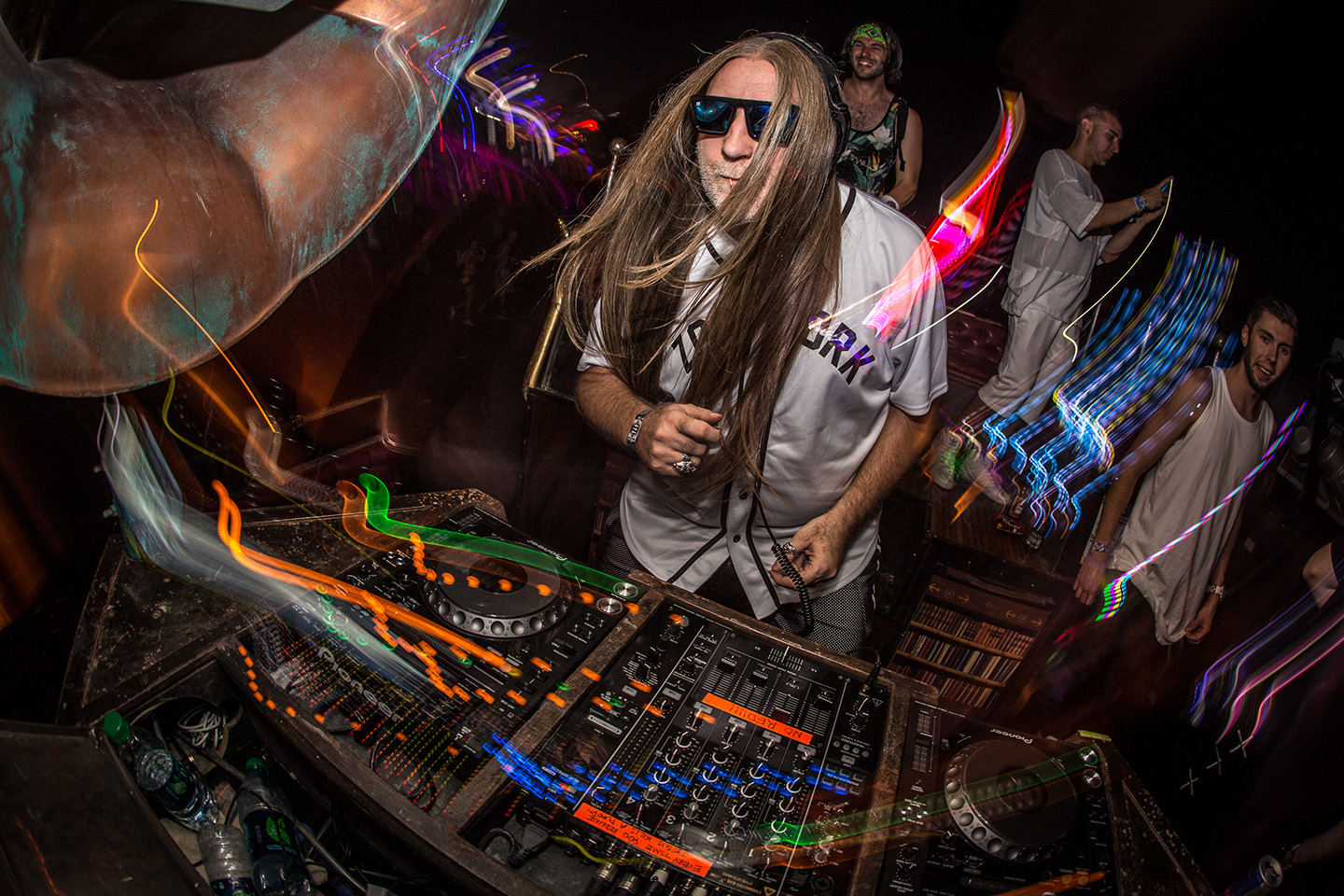
6. Surround yourself with good people
Every successful DJ needs a management team, and it’s important to make sure that team has your best interests at heart. “I have the best team on earth. I trust them with my life,” the Black Madonna recently wrote in a piece for Dazed Digital about maintaining one’s mental health while on tour. “Make sure your team has your wellness in mind. If they don’t, they’re the wrong people to have in your life.”
Borgore echoes this sentiment. “A good tour manager has to be someone that is almost a brother or a father or a mother.” But he adds that staying in touch with close friends and family is equally important. “I talk to my parents; I talk to my sister every day. It keeps me grounded. I owe my life to it.”
7. Say no to recreational drugs
This is another obvious one, but it bears repeating. “Everyone should stay away from taking drugs,” cautions Borgore. “Even if you don’t die from it, you’re gonna lose all your money from it eventually.”
When it comes to drug abuse and misuse, no one is more of an authority than Tommie Sunshine, who did it all before finally getting sober in 2005. “I did it with such reckless abandon that nothing was off limits,” he says of his hard-partying past. Now when he DJs an event, free from the mind-altering effects of drugs and alcohol, “it makes me so incredibly happy that I am sober.” And he’s eternally grateful that dance music is more popular than ever, now that he’s mentally present for it: “I am so thankful that I get to experience this all over again.”
Tommie is not what he calls an “evangelical” sober person. “Everyone can do what they want to do,” he says. But sobriety is a viable option for anyone who’s ready to embrace it—and he’s living proof that you can do so without turning your back on dance music.

